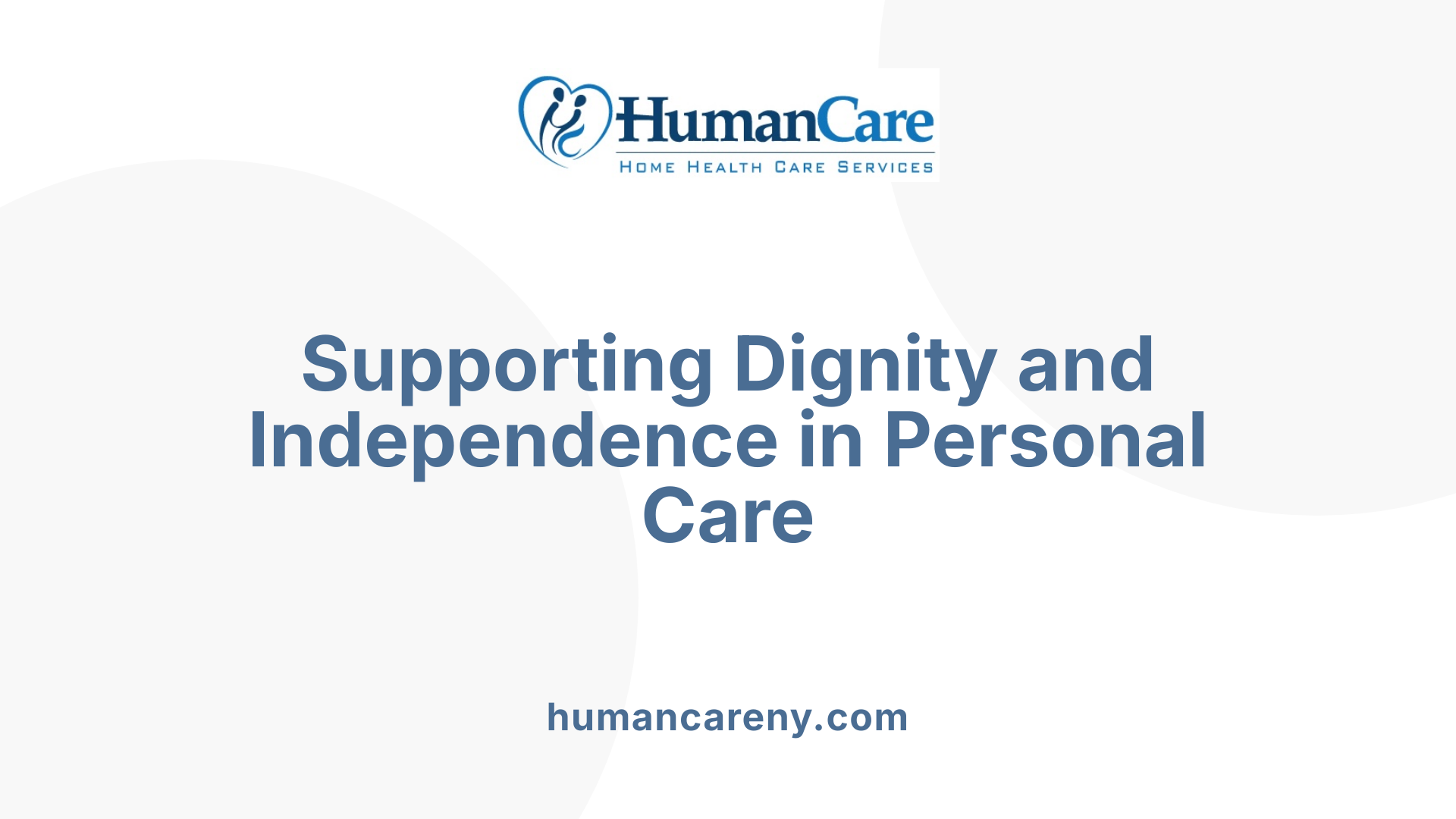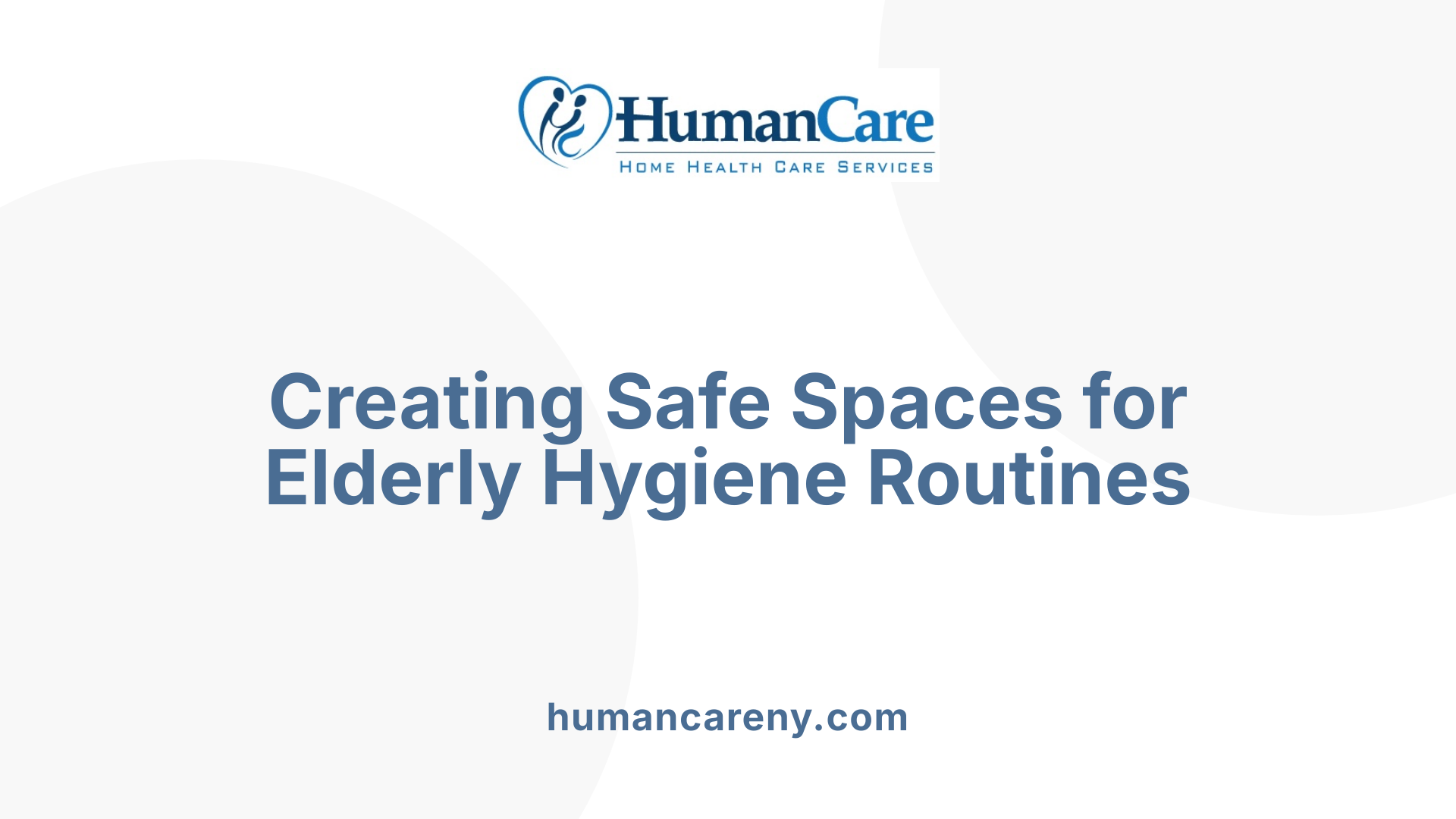Ensuring Dignity and Independence Through Home Support
Homemaking services play a vital role in supporting seniors’ daily hygiene routines, contributing to their health, safety, and overall quality of life. By offering tailored assistance with personal care and household management, these services empower seniors to maintain their independence while living comfortably in their familiar environments. This article explores how homemaking services aid with daily hygiene, the safety measures employed, and the profound impacts these services have on seniors' well-being.
Comprehensive Assistance with Personal Hygiene Activities

How do homemaking services assist seniors with daily hygiene and personal care?
Homemaking services provide vital support to seniors in maintaining their personal hygiene and daily care routines. These services include help with bathing, dressing, grooming, toileting, and medication reminders. By assisting with these activities, homemaking professionals help seniors preserve their dignity and independence.
For example, programs such as the Clark County Social Service's Homemaker Home Health Aide (HHHA) Program offer comprehensive support that goes beyond basic chores. They assist with laundry, light house cleaning, grocery shopping, and other tasks essential for daily living. This holistic approach ensures seniors can manage their personal hygiene while remaining safe and comfortable at home.
In addition to basic assistance, some services coordinate with healthcare providers to address specific medical needs, such as wound care or medication management. Regular reminders to take medications on time help prevent complications and promote better health.
Overall, these personal care services are crucial in enabling seniors to maintain their daily hygiene routines. They significantly reduce safety risks like falls or infections and contribute to improved quality of life. By supporting seniors in their self-care, homemaking services also minimize the need for hospital or institutional care, allowing older adults to age in place with dignity.
Enhancing Safety and Comfort with Practical Measures

What safety measures do homemakers use to support seniors' hygiene routines?
Homemaking services prioritize safety during hygiene routines for seniors by implementing a range of practical measures. Installations such as grab bars and non-slip mats in bathrooms are common to prevent slips and falls. These modifications help seniors feel confident and secure when moving around during bathing or grooming.
Accessible modifications are also vital, including widened doorways and raised toilet seats, which make it easier for seniors with mobility limitations to perform hygiene tasks independently. Lever handles replace traditional knobs, reducing the effort needed for gripping and turning.
Assistive devices like shower chairs and bed guards provide additional support, ensuring comfort and stability during personal care activities. These tools help seniors maintain independence while reducing accident risks.
Safety technology, such as sensors, security systems, and emergency alert devices, plays an important role in monitoring seniors and enabling quick responses during emergencies.
Regular safety assessments are conducted to identify hazards and ensure the environment remains secure. Caregivers receive specialized training focused on infection control, emergency procedures, and proper hygiene protocols.
Strict hygiene protocols include thorough disinfection of surfaces, proper use of personal protective equipment (PPE), and adherence to sanitation standards. These practices help prevent infections and create a safe, comfortable setting for personal care routines.
Impact on Senior Well-Being and Independence

How do homemaking services impact seniors' safety, dignity, and well-being?
Homemaking services play a vital role in enhancing the safety, dignity, and overall quality of life for seniors living at home. These services include assistance with daily personal care routines—such as bathing, grooming, and dressing—that ensure seniors maintain personal hygiene while preserving their privacy and sense of independence.
In addition, help with household chores like light cleaning, laundry, and meal preparation creates a safer living environment by reducing clutter and hazards that could lead to falls or injuries. Regular cleaning lowers the risk of infections and allergies, contributing to better health.
Moreover, homemaking services include medication reminders and support for nutritional needs, which help prevent health complications. The emotional aspect of care is also addressed through companionship and conversation, reducing feelings of loneliness and promoting mental well-being. These services support cognitive health by encouraging routines and engagement.
Supporting family caregivers through respite care alleviates stress and prevents burnout, ensuring that seniors receive consistent, respectful help. Overall, homemaking services empower seniors to live with dignity in familiar environments, fostering both physical safety and emotional health.
| Aspect of Care | Examples | Benefits |
|---|---|---|
| Personal Hygiene | Bathing, grooming, dressing | Maintains dignity, supports independence |
| Household Safety | Cleaning, organizing, home maintenance | Prevents falls, reduces infections |
| Nutrition | Meal prep, dietary planning | Prevents malnutrition, promotes health |
| Emotional Well-being | Companionship, conversation | Reduces loneliness, boosts mood |
| Medical Support | Medication reminders | Prevents health deterioration |
| Family Support | Respite care | Reduces caregiver stress, ensures continuous care |
By addressing physical, emotional, and safety needs, homemaking services help seniors age comfortably and securely in their own homes.
Supporting Independence and Daily Living Activities

How do homemaking services help seniors maintain independence in daily living activities?
Homemaking services play a vital role in helping seniors live independently by providing support with everyday tasks that might become difficult due to age or health issues. These services include assistance with personal hygiene routines such as bathing, grooming, and dressing, ensuring safety and dignity. They also handle meal planning and preparation, offering nutritious, tailored meals that promote good health.
Light housekeeping tasks like dusting, vacuuming, laundry, and tidying up help maintain a clean, organized, and hazard-free environment. This reduces the risk of falls and infections while enabling seniors to enjoy a safe and comfortable home. Additionally, assistance with errands such as grocery shopping supports seniors in meeting their daily needs without overexertion.
Programs designed for in-home support, such as the Home Help and Homemaker Programs, further facilitate seniors’ ability to manage daily routines independently. These services also include medication reminders and management of health routines, which are crucial for maintaining health and preventing complications.
Support from home health care providers and geriatric care managers ensures that seniors with chronic health conditions receive proper guidance and care coordination. This comprehensive approach fosters a sense of autonomy and security, allowing older adults to age in place comfortably.
Overall, homemaking services are essential in maintaining the physical safety, emotional well-being, and independence of seniors, enabling them to continue living in their familiar environment while reducing reliance on external care options.
Holistic Approach: Combining Practical Support and Emotional Well-being

How do homemaking services enhance seniors' quality of life through hygiene support?
Homemaking services significantly boost the overall well-being of seniors by helping them maintain a clean, organized, and safe living environment. Regular light housekeeping tasks such as dusting, vacuuming, laundry, and dishwashing remove hazards like clutter and spills that could lead to falls or injuries.
Beyond physical safety, these services promote better health outcomes by reducing dust, mold, and bacteria, decreasing the risk of allergies and infections. They also assist with personal hygiene routines—including bathing, grooming, oral care, and dressing—ensuring elders stay clean and comfortable.
Many homemakers support medication reminders that help seniors adhere to health regimens, fostering independence and security. Additionally, preparing nutritious meals tailored to specific dietary needs helps prevent malnutrition and supports cardiovascular, diabetic, or other health considerations.
Providing companionship, homemaker services combat loneliness and emotional distress, which are common among seniors living alone. Emotional support through conversation and social interaction contributes to mental health and a positive outlook.
What role does respite care play in senior support?
Respite care offers short-term relief to family caregivers, allowing them time to rest or tend to personal matters. During this period, professional homemakers or care aides continue to support the senior’s hygiene routines and daily needs ensuring continuity of care. Respite services are vital in preventing caregiver burnout, which directly benefits senior safety and stability.
How does coordination with healthcare professionals complement homemaking services?
Effective senior care often involves collaboration with healthcare providers such as geriatric care managers, nurses, and mental health professionals. These experts help tailor hygiene routines and personal care practices according to medical requirements.
For seniors recovering from surgery or managing chronic conditions, proper wound care, medication management, and mobility assistance are critical. Coordination ensures all these health needs are integrated into the routine support provided at home, creating a comprehensive and personalized care plan.
This integrated approach nurtures physical health, emotional well-being, and independence, making aging in place both safe and dignified.
| Service Type | Focus Areas | Benefits |
|---|---|---|
| Homemaking & Household Tasks | Cleaning, laundry, meal prep | Safer, healthier, and organized environment |
| Personal Hygiene Assistance | Bathing, grooming, dressing | Maintains dignity and promotes health |
| Nutritional Support | Meal planning and preparation | Prevents malnutrition, supports chronic condition management |
| Companion & Emotional Support | Conversation, social engagement | Reduces loneliness, improves mood |
| Respite & Caregiver Support | Temporary relief for caregivers | Prevents burnout, ensures ongoing senior support |
| Healthcare Coordination | Medical needs and health management | Ensures safe, effective, personalized care |
By combining these services, seniors enjoy a balanced approach that addresses their physical health, emotional needs, and safety, enabling them to age actively and comfortably at home.
Fostering Independence Through Compassionate Support
Homemaking services are an essential resource for supporting seniors with daily hygiene and personal care, ensuring their safety, dignity, and independence. Through a combination of practical assistance, safety measures, emotional support, and healthcare coordination, these services improve overall well-being and enable seniors to enjoy a higher quality of life. As the aging population grows, expanding access to such comprehensive homemaking support becomes vital to helping seniors live comfortably and confidently in their own homes.
References
- Why Homemaking Services Are Crucial for Seniors
- How Homemaker Services Improve Daily Life
- Personal Care and Dignity: Homemaker Services that Support ...
- How Homemaking Services Can Enhance Daily Life for Seniors
- HOW HOMEMAKING SERVICES ENHANCE QUALITY OF LIFE FOR ...
- How Can Home Care Services Help Seniors with Housekeeping?
- The Impact of Light Housekeeping on Senior Independence
- Services for Older Adults Living at Home | National Institute on Aging
- Homemaker Services - Senior Homecare - The Caregiving Company
- Why Homemaker Services Can Be Very Important For Seniors



